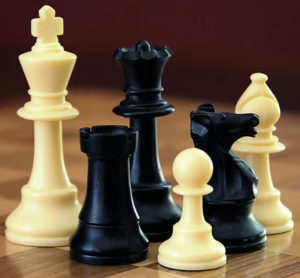Artificial Intelligence (AI) Applied to Chess
Twenty-one years ago today, on February 10, 1996, an IBM supercomputer called Deep Blue beat then-reigning world champion Garry Kasparov in a game of chess, although Kasparov won the six-game match. In a rematch 14 months later, Deep Blue won the match.

AI Applied to International Law
To win at chess, a computer has to predict how its human opponent is likely to move in response to moves the computer makes. So can a computer today predict how a human tribunal is likely to rule in a case? The answer may be yes.
Researchers have now created a machine-learning algorithm that has predicted the outcome of cases decided by the European Court of Human Rights with 79% accuracy. The algorithm was given text from the publicly available HUDOC database—summaries of submissions to the court. Based on language used, and topics and circumstances mentioned in the summary of each party’s submission, the algorithm predicted what the court would decide.
Would the results have been as accurate if the algorithm had been given the original submissions to the court, rather than the summaries? Unfortunately, the originals are not publicly available, so the answer is unknown.

More on AI and the Law
- BBC timeline of the development of artificial intelligence
- ABA Journal – How artificial intelligence is transforming the legal profession
- Forbes – How artificial intelligence will transform the delivery of legal services
- Search Coleman Karesh Law Library’s holdings related to AI and the law.